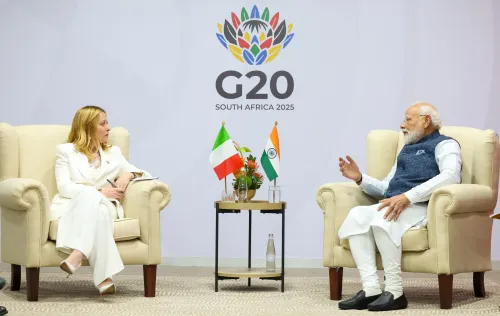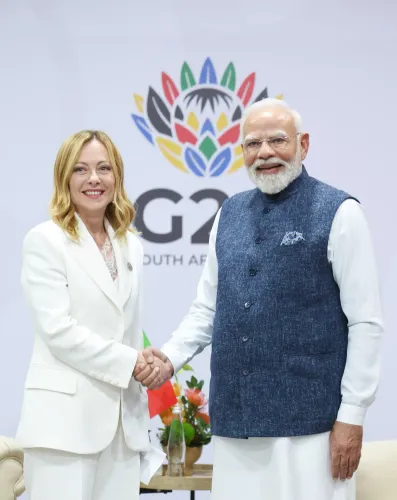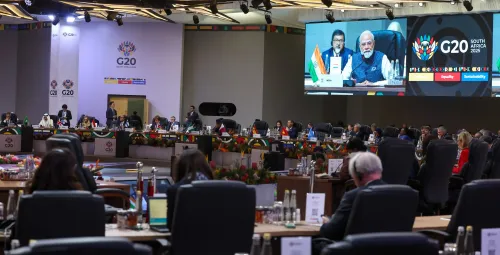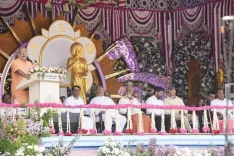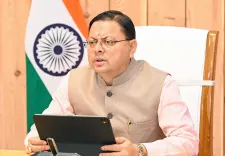Why Did Trump’s Tariffs on India Surprise Experts?

Synopsis
Key Takeaways
- Lisa Curtis finds Trump's tariffs on India unexpected.
- India's economy is crucial for US-India relations.
- The tariffs mark a shift from previous diplomatic efforts.
- Effective foreign policy should extend beyond tariffs.
- Future trade negotiations may yield positive results.
New Delhi, Aug 7 (NationPress) Prominent foreign policy and national security specialist Lisa Curtis, who held the role of Deputy Assistant during the first term of US President Donald Trump, described the recent announcement of additional tariffs on India as “shocking”. She emphasized that India’s rapidly expanding economy serves as a key strength in the strategic alliance between the two nations.
In an exclusive interview with IANS, Curtis expressed her astonishment at the 25 percent tariff imposed on Indian imports, particularly given that China—considered a strategic adversary to the US—has not been subjected to similar restrictions despite its imports of Russian oil.
“India is a strategic partner of the United States. China is a strategic rival. So, this really doesn’t make sense,” she remarked.
Nonetheless, Curtis pointed out that this tariff decision indicates a departure from the previous approach taken during Trump’s first term, which aimed to foster trust and enhance cooperation with India.
“During the first Trump term, we witnessed a concerted effort to elevate the relationship with India, to build trust and confidence. This tariff decision reflects a completely different approach,” she noted.
Currently serving as a senior fellow and director of the Indo-Pacific Security Program at the Center for a New American Security (CNAS), Curtis explained the economic context behind India’s current import trends, stating that “India hardly imported any oil from Russia before the Ukraine crisis. Now, Russia is one of India’s largest oil suppliers. It wouldn’t harm India’s economy to revert to other suppliers.”
From 2017 to 2021, Curtis served as Deputy Assistant to the President and Senior Director for South and Central Asia at the US National Security Council (NSC). During her tenure, she was instrumental in coordinating the US policy development and implementation of the South Asia Strategy approved by the President in 2017, and was a significant contributor to the Indo-Pacific Strategic Framework, which involved expanding Quad security cooperation.
Addressing broader aspects of US foreign policy, Curtis cautioned against an overly simplistic focus on tariffs and market access.
“You can’t formulate an effective foreign policy by boiling everything down to tariffs,” she stated, adding, “Relationships are built on military cooperation, political cooperation, and strategic convergence, not just trade.”
Looking forward, Curtis remains cautiously optimistic regarding the upcoming trade negotiations between the US and India scheduled for the end of August.
“We may very well reach a deal, which could help mitigate some of the unhelpful rhetoric of recent weeks,” she observed.
Despite ongoing tensions, Curtis expressed confidence in India’s economic resilience and its critical role on the global stage. “India greatly benefits from its partnership with the US and will likely explore ways to maintain and enhance that relationship,” she concluded.


